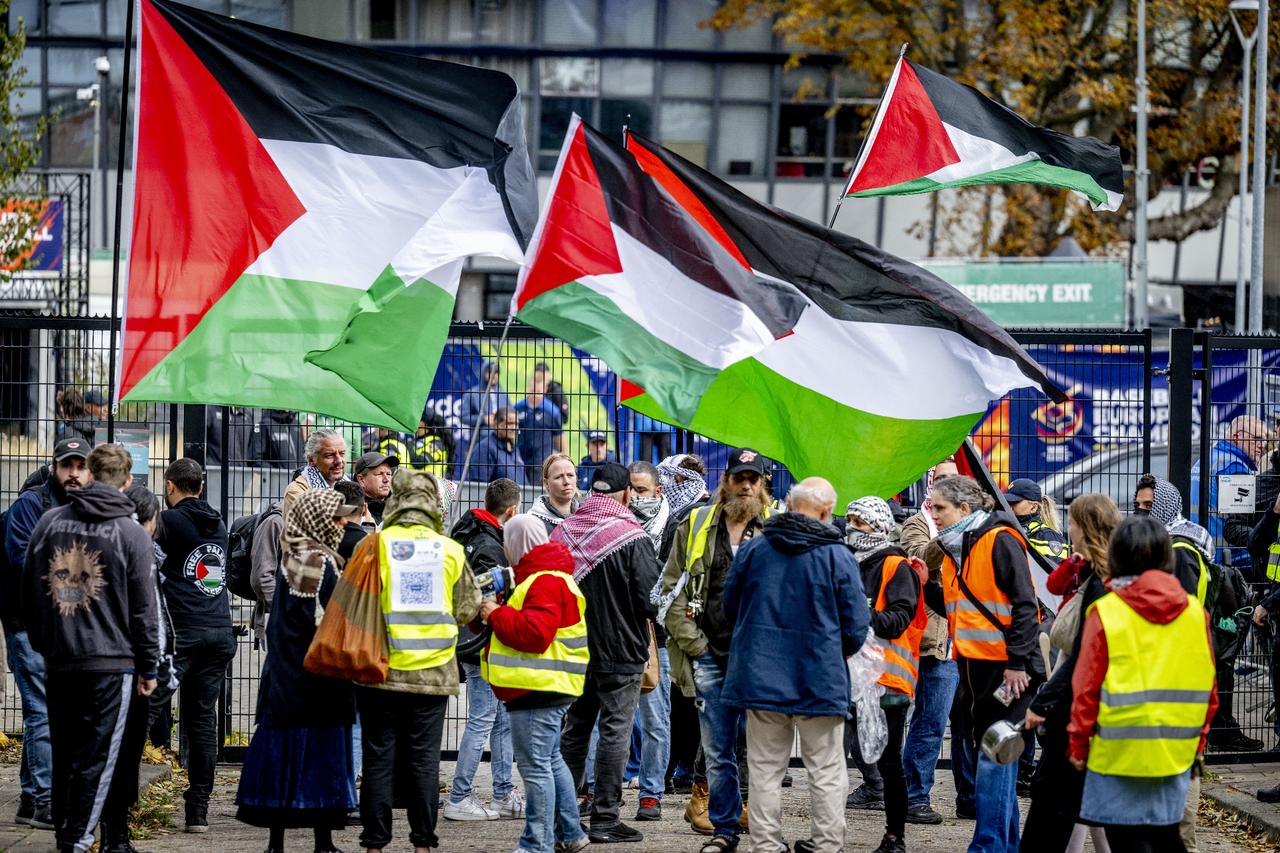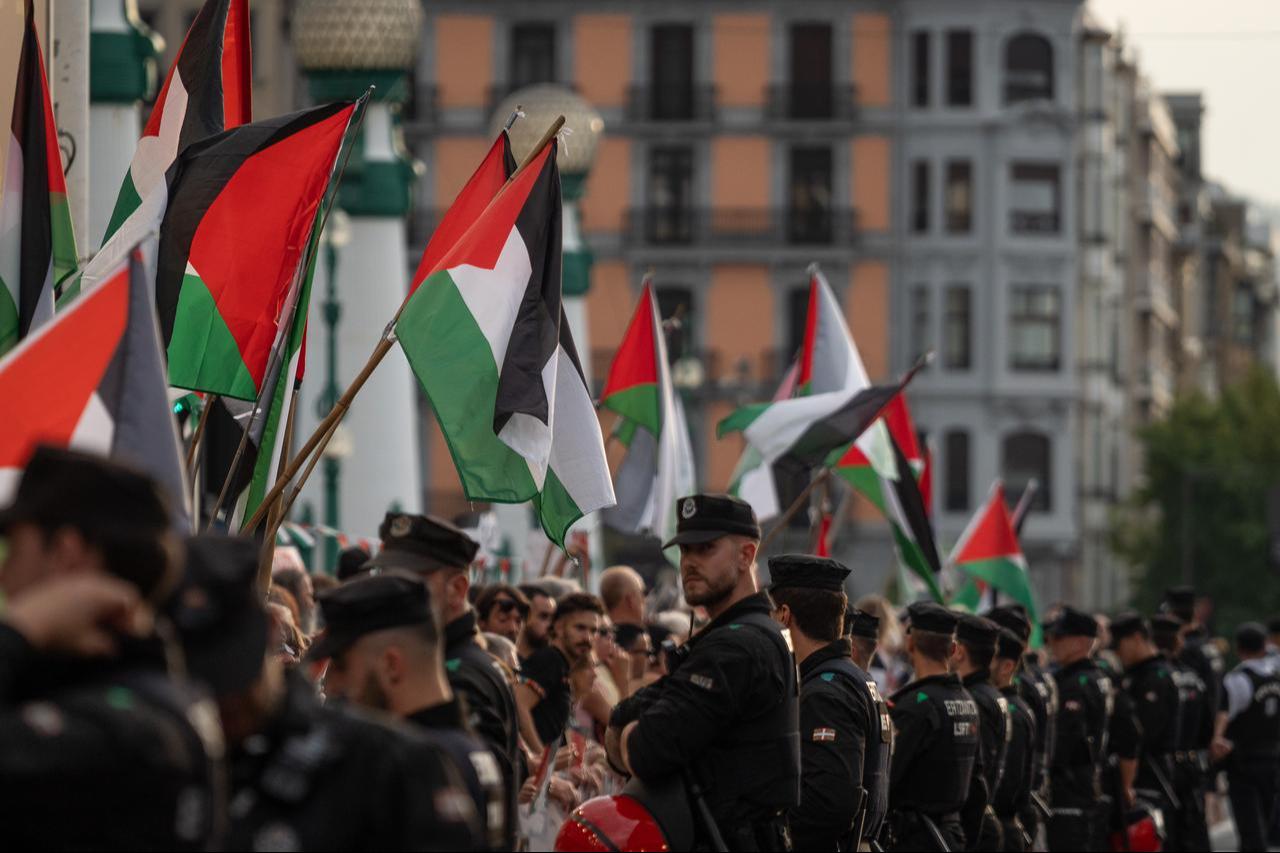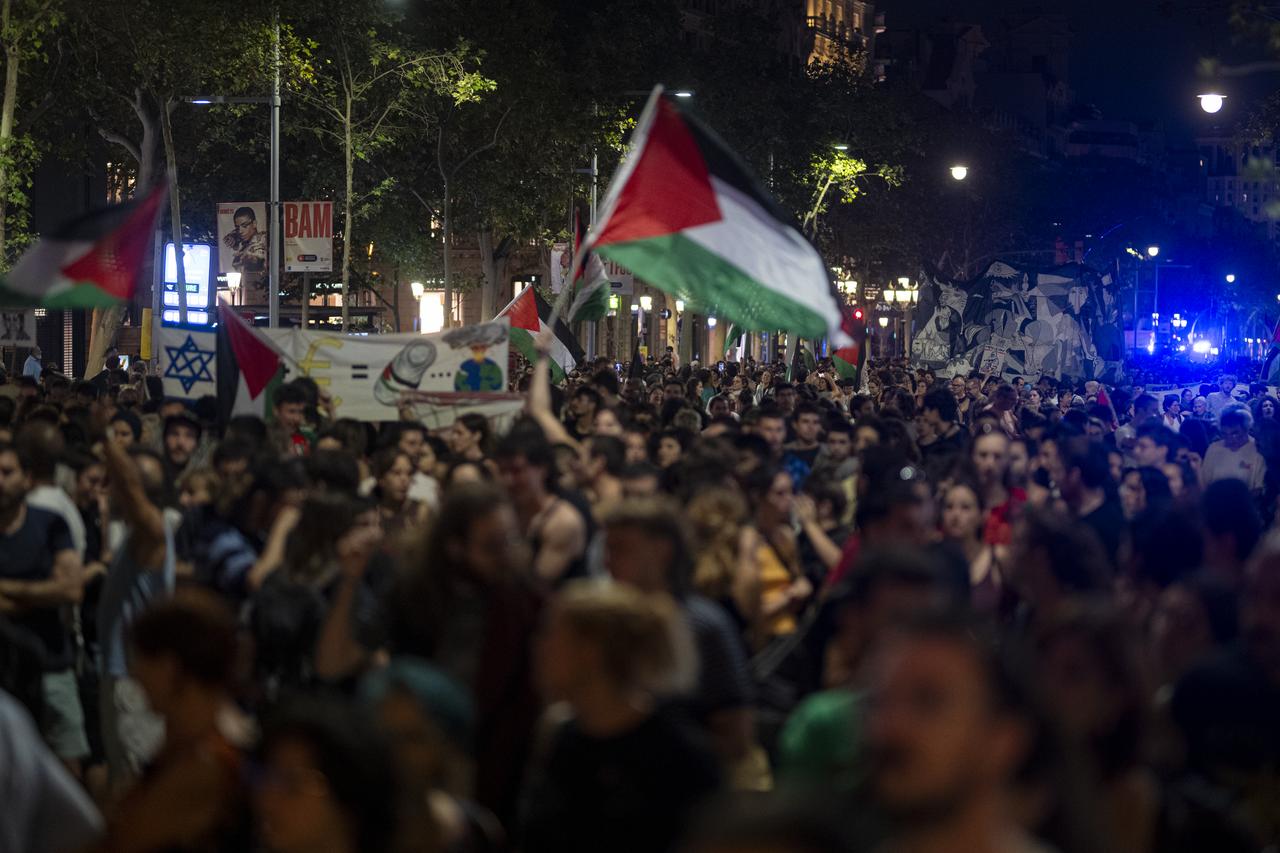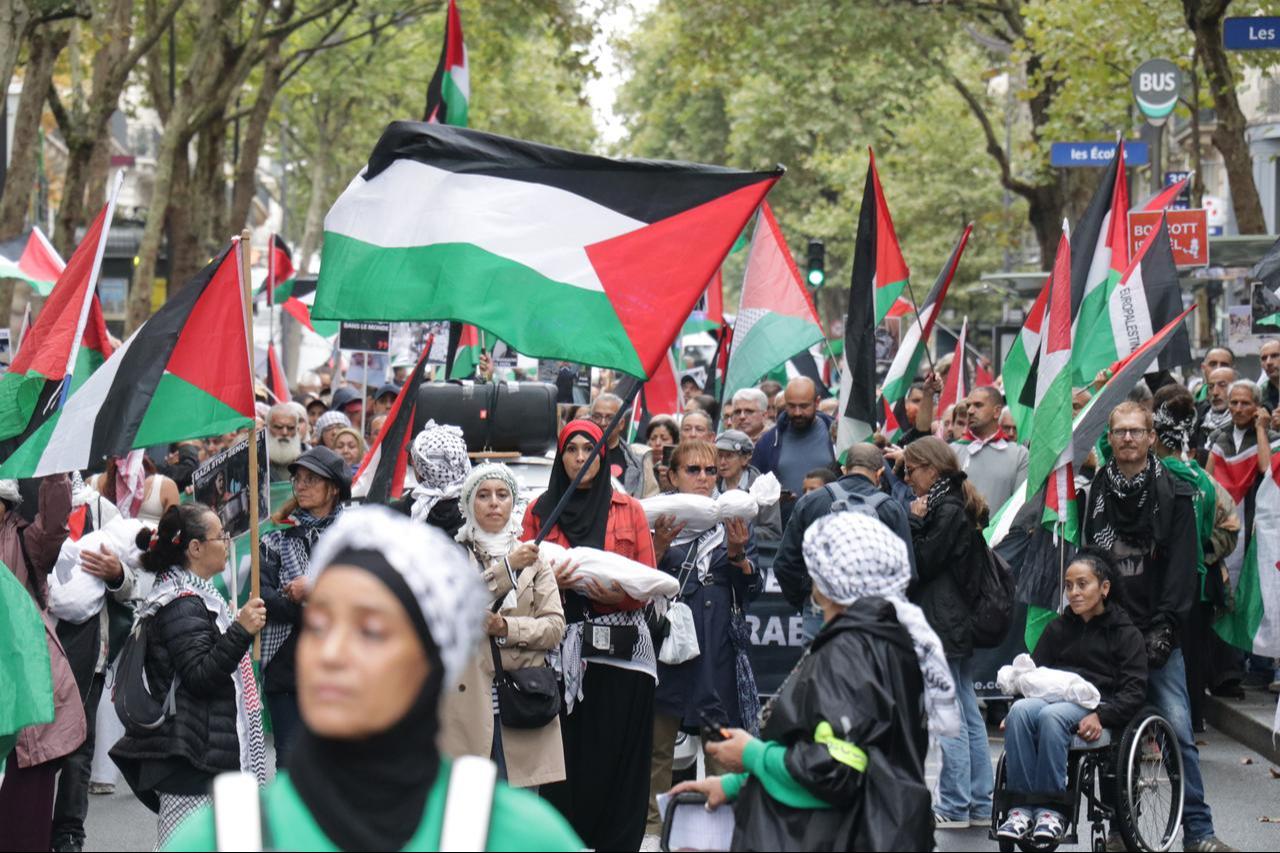
Britain, Canada and Australia formally recognized Palestinian statehood Sunday in a coordinated announcement that marks a seismic shift in Western foreign policy, with the U.K. and Canada becoming the first G7 nations to take the step.
The simultaneous declarations, made ahead of Monday's U.N. General Assembly in New York, triggered swift condemnation from Israel, with Prime Minister Benjamin Netanyahu calling the move an "absurd reward for terrorism" that would "endanger our existence."

British Prime Minister Keir Starmer announced the decision in a video statement, declaring, "So, today, to revive the hope of peace and a two-state solution, I state clearly, as prime minister of this great country, that the United Kingdom formally recognizes the state of Palestine."
"Today we join over 150 countries that recognize a Palestinian state," he said.
"The starvation and devastation are utterly intolerable," he underlined, adding that the situation is now "nowhere near enough aid is getting through."
"Stop these cruel tactics and let the aid surge in," he said.
Canadian Prime Minister Mark Carney pledged partnership with both states, writing, X: "Canada recognizes the State of Palestine and offers our partnership in building the promise of a peaceful future for both the State of Palestine and the State of Israel."
Australian Prime Minister Anthony Albanese said the recognition acknowledges "the legitimate and long-held aspirations of the people of Palestine to a state of their own," calling it part of a "coordinated international effort to build new momentum for a two-state solution."
"The current Israeli government is working methodically to prevent the prospect of a Palestinian state from ever being established. It has pursued an unrelenting policy of settlement expansion in the West Bank, which is illegal under international law," the Canadian Prime Minister said in his official statement.
"Its sustained assault in Gaza has killed tens of thousands of civilians, displaced well over one million people, and caused a devastating and preventable famine in violation of international law. It is now the avowed policy of the current Israeli government that ‘there will be no Palestinian state,’" he added.
"While Canada is under no illusions that this recognition is a panacea, this recognition is firmly aligned with the principles of self-determination and fundamental human rights reflected in the United Nations Charter and the consistent policy of Canada for generations," Carney noted.
Starmer addressed the humanitarian crisis directly, stating, "The starvation and devastation are utterly intolerable. This death and destruction horrifies all of us."
He called on Israel to "stop these cruel tactics and let the aid surge in," while demanding Hamas immediately release the remaining hostages.

Anticipating criticism, Starmer explicitly stated, "This solution is not a reward for Hamas because it means Hamas can have no future, no role in government, and no role in security."
The British government had set conditions in July for recognition, including a ceasefire in Gaza, increased humanitarian aid, and assurances that Israel would not annex the West Bank.
Deputy Prime Minister David Lammy told the BBC on Sunday that "now is the time to stand up for a two-state solution."
Israeli officials reacted angrily to the coordinated recognition. Knesset Speaker Amir Ohana called Starmer "a modern-day appeaser who chose dishonor," while former Defense Minister Benny Gantz claimed the move "only emboldens Hamas."
Far-right politician Itamar Ben-Gvir demanded "immediate countermeasures," including seizing more land and "complete crushing of the Palestinian terror authority."
The Israeli foreign ministry framed the decision as rewarding Hamas terrorism.
Portugal announced it would also formally recognize Palestine later Sunday. France, Luxembourg and Malta have signaled similar intentions at the U.N. General Assembly, which runs through Sept. 29.
Currently, over 140 of the 193 U.N. member states recognize Palestinian statehood, which Palestine declared on Nov. 15, 1988.
Palestinian Foreign Minister Varsen Aghabekian Shahin told Agence France-Presse (AFP): "Recognition is not symbolic. It sends a very clear message to the Israelis about their illusions about continuing their occupation forever."

All three nations emphasized that recognition aims to preserve the two-state solution as the path to peace.
"At the moment, we have neither" a safe Israel nor a viable Palestinian state, Starmer said, calling the two-state solution "the best hope for peace and security for all sides."
Portuguese President Marcelo Rebelo de Sousa echoed this sentiment: "By acting now, as the Portuguese government has decided, we're keeping alive the possibility of having two states."